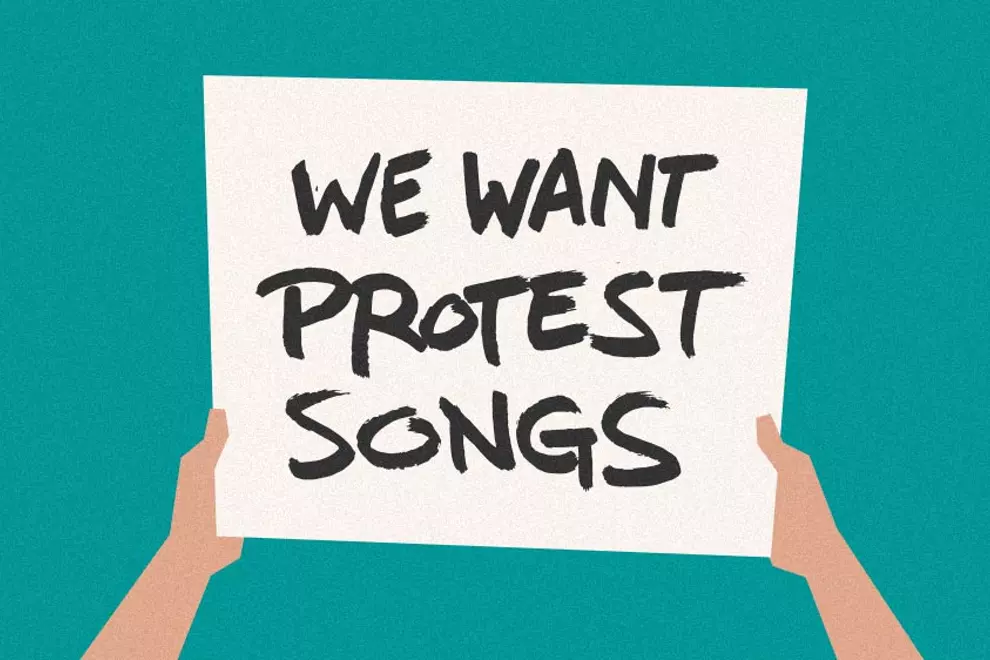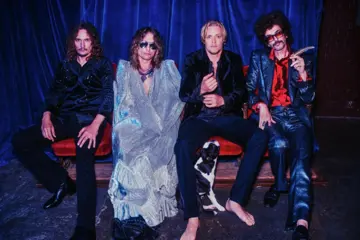The streets of Melbourne were recently flooded with neo-Nazi and anti-lockdown groups, marching under the banner of “March for Australia”.
It wasn’t just their slogans or speeches ringing out across the city streets—the rallies marched to the beats of some of Australia’s most iconic songs. Icehouse’s Great Southern Land, Cold Chisel’s Flame Trees, and tracks by The Living End blasted from PA systems, providing a free and emotive soundtrack—that the artists never authorised.
The response from the Aussie artists was swift and stern. Jimmy Barnes, a longtime voice for inclusivity, made it staunchly clear that the groups did not (and would never) have permission to use his songs, particularly to promote their divisive agenda. The Living End also immediately distanced themselves, publicly declaring their music was never intended to be a soundtrack for hate.
Beyond the moral outrage, there are clear legal issues at play here, and by not obtaining permission or licences to use the songs in the manner they have, the rally organisers have potentially landed themselves in serious legal trouble.
Copyright 101
The Copyright Act 1968 (Cth) (the ‘Act’) is clear: all artistic, literary, musical and dramatic works are protected. Section 31 of the Act grants copyright owners a number of exclusive rights in relation to their work, including the right to “perform” the work in public. This extends to playing amplified music over a public address system.
Don't miss a beat with our FREE daily newsletter
Music, specifically, is uniquely layered. The musical composition (the underlying musical work and the lyrics), and the sound recording comprising the musical composition (the ‘Masters’) are each protected separately under the Act, sometimes with different copyright owners. For example, it is not uncommon for Masters to be owned or controlled by a record label, with musical compositions owned or controlled by a music publisher.
Regardless of who actually owns the copyright, if anyone other than the owner carries out any of the acts contemplated by Section 31 without permission, that’s infringement. No excuses.
Public Performance – do rallies count?
Does blaring Great Southern Land through a speaker to hundreds of protesters count as “public performance”? Absolutely.
The law doesn’t just deem “public” to mean headline festivals or stadium shows. Courts have held a performance can be deemed public even within domestic settings, if it extends beyond a private, intimate audience. Amplifying songs through a PA system on Melbourne streets? You’ll definitely need a licence.
The Act actually goes further. Under Section 85, copyright in a sound recording (also) gives the owner the exclusive right to “cause the recording to be heard in public”. Playing tracks at a rally without a licence therefore breaches the copyright in both the musical work as well as the sound recording - a legal double whammy.
Who provides permission?
In Australia, artists aren’t usually the ones directly dealing with performance rights or the direct licensing of their musical works or masters. Instead, that role sits with licensing organisations.
Since 2019, OneMusic has been the central licensing body in Australia, jointly representing both:
APRA: which collects public performance royalties for songwriters, composers and music publishers; and the
PPCA: which collects royalties for recording artists and record labels when recorded music is broadcast or played publicly.
Together, these organisations cover any public performance licenses for both the musical composition and the sound recording—essentially, the whole song.
OneMusic offers over 20 types of public performance licenses, covering everything from cafes and gyms to festivals and concerts. And, yes, political events (i.e. rallies) are on the list. APRA AMCOS’ own ‘Guide to Musical Licensing for Political Parties’ makes it clear: playing music at fundraisers, campaign events, and rallies all require OneMusic licenses.
And obtaining a licence doesn’t just cost money; it is also subject to approval. If an artist doesn’t want their music associated with a particular person, organisation or cause, then in most instances, they can refuse outright. Which means even if March for Australia had gone through the proper legal channels, Barnes and the other artists almost certainly would have said ‘no’.
Passing off – when music misleads
There’s also another legal angle available to Messrs Barnes, Davies and Cheney: the legal doctrine of passing off. This is when someone uses a person’s name or likeness, a brand or product (i.e. a song), such that it misleads the public to believe an endorsement or affiliation exists when it does not.
By blaring Flame Trees or Great Southern Land at a political rally, there is a very real risk the public could believe the artists themselves support the cause. This is why Barnes, Icehouse, and The Living End quickly and publicly set the record straight, through social media posts or PR spokespeople. They are not just saying ‘don’t steal our music’; they are rejecting all falsely insinuated affiliations with these political movements.
Passing off is a civil wrong, and while less common than copyright infringement claims, it represents another string to an artist’s (legal) bow. If a Court found that the Melbourne rally created the false impression of an endorsement between the rally and those artists (or any other public figures), the organisers could face a damages claim on that front too.
Who is on the hook?
When infringement occurs at a political rally, who can be sued? Typically, the rally organiser – the person and/or group responsible for staging the event and making the music publicly heard - will be on the hook. Thankfully, the law doesn’t necessarily concern itself with who pressed “play”.
The Act also deems organisers liable if they authorise or facilitate the unauthorised use of music. In this case, the protest leaders who organised Facebook events, set up sound systems, and pumped the anthems could likely face the consequences.
Identifying the protest leaders or organisers of a rally can be inherently difficult, especially in circumstances where there may be a number of competing groups descending on the same space at the same time. One can’t help but acknowledge that a protest “permit system” does have some merit in (at least) helping to identify protest organisers or leaders in circumstances where the rights of third parties have been infringed.
Penalties for infringement
The penalties for copyright infringement aren’t just a slap on the wrist. Courts can order infringers to pay damages or fines (which can be substantial) and/or force them to hand over any profits made as a result of the infringing conduct.
In 2018, the Federal Circuit Court ordered Melbourne bar Hairy Little Sista to pay $185,000 in damages for playing unlicensed songs in their bar, including tracks by The Beatles and the Bay City Rollers. If a small bar can be held liable, a nationally organised protest certainly can be too.
In the case of passing off, Courts have a range of punitive powers, including to award exemplary damages (in such quantum as the Court sees fit) to punish serious misconduct.
The bottom line
For artists, this fight isn’t just about royalties – it’s also about reputation. No artist wants their work used to fuel a message they fundamentally oppose. Barnes said it best: his songs are for bringing people together, not tearing them apart.
Using music to hype up a protest may seem harmless, but the law doesn’t see it that way. Political groups need licences to play music, just like any other public institution.
So the next time anyone thinks about hijacking an Aussie anthem for their political cause, here’s a tune to remember: no licence, no rights, no exceptions.
Sanicki Lawyers
Natasha was admitted as a solicitor in May 2025 and now practises in Entertainment Law and Commercial Litigation at Sanicki Lawyers. With a background in film and media, she believes deeply in the power of the arts to shape hearts, minds, and policy – and is driven by a passion for using the law to support the creative industries and spark positive social change.
Natasha holds a Bachelor of Arts from the University of Melbourne, where she double majored in Media & Communications and Screen & Cultural Studies, followed by a Juris Doctor from Melbourne Law School, and a Graduate Diploma of Legal Practice from Leo Cussen. Her career journey has woven through corporate boardrooms (Ashurst; Deloitte) and creative spaces (Red Bull Aston Martin Racing; impact film company Moonshine Agency), and she couldn’t be more thrilled to now be working with the wonderful Sanicki Lawyers team. Outside of work, Tash is a devoted film buff, live music enthusiast, passionate stress baker, and diehard football (soccer!) fan.



















